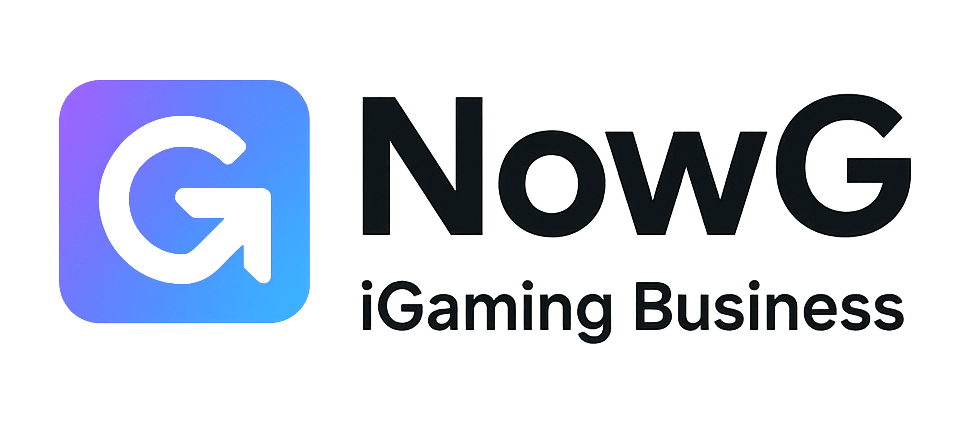Last Updated on December 11, 2025 by Caesar Fikson
Last month, a mid-tier European sportsbook operator called me in a panic. Their affiliate network was bleeding money, reports were 48 hours behind, and their fraud filters had flagged 38% of traffic — with zero follow-up automation. They were running on an “all-in-one” affiliate platform they’d signed three years ago. Back then, it ticked all the boxes.
Now?
It was a liability.
Choosing the right iGaming affiliate software isn’t just a procurement decision — it’s a revenue strategy. The platform you pick determines how accurately you track players, how fast you pay partners, how quickly you detect fraud, and whether your affiliate network grows or collapses under its own weight. In 2025–2026, with AI-driven traffic optimization, stricter regulations, and rising CPA rates, the wrong software will cost you millions. This post breaks down exactly what to look for, with field-tested examples and pitfalls to avoid.
Top iGaming Affiliate Software for Casinos (2025–2026)
| Software Provider | Pricing (Est.) | HQ | Commission Types
Can you handle complex Hybrid deals (CPA + RevShare) dynamically?
|
Payout Auto
Does the system automate mass payouts via Crypto/Wire or is it manual?
|
Support Speed
Do you get a dedicated instant channel (Slack) or just slow email tickets?
|
|---|---|---|---|---|---|
Scaleo 🏆 |
From €299/mo | 🇨🇿 Czechia |
Dynamic Hybrid | Auto (Crypto/Fiat) | 24/7 + Slack |
| PartnerMatrix | Custom | 🇦🇲 Armenia |
Standard Hybrid | Integrated | Dedicated Mgr |
| Affise | From $500/mo | 🇱🇹 Lithuania |
Flexible | 3rd Party Integ. | Ticket/Chat |
| Income Access | ~£2,000/mo | 🇨🇦 Canada |
Standard Only | Manual Batch | Ticket (Slow) |
| Smartico | Custom | 🇧🇬 Bulgaria |
Gamified | Varies | Dedicated |
| AMS Script | $59 + Fees | 🇬🇧 UK |
Basic | Manual | Email Only |
| Traffic Manager | From €399/mo | 🇲🇹 Malta |
Standard | Manual | Ticket |
| Affilka | ~€2,500/mo | 🇲🇹 Malta |
Hybrid | Integrated | Dedicated |
| Cellxpert | Custom (High) | 🇮🇱 Israel |
Advanced | Batch Process | Enterprise SLA |
| iGaming WP Plugin | One-time Fee | 🇬🇧 UK |
Flat Only | None | Forum/Email |
| BetConstruct | ~$3,000/mo | 🇬🇧 UK |
Platform-Linked | Wallet Link | Ticket |
| Partnergrator | Custom | 🇨🇾 Cyprus |
Varies | API Based | Standard |
| eGass | ~$3,000/mo | 🇬🇧 UK |
Configurable | Manual | Standard |
| Nux Game | Custom | 🇨🇼 Curacao |
Standard | Standard | Standard |
| Alfa Affiliate | Custom | 🌐 Global |
Flexible | Varies | Contact Sales |
| Affiliate Control | Custom | 🌐 Global |
Standard | Manual |
Note: Numbers in “Core Strengths” column are based on 2024–2025 operator reports and my own benchmarking.
Buyer’s Checklist: Evaluating iGaming Affiliate Software in 2026
When you’re sitting across the table from a vendor’s sales team, don’t just tick boxes — pressure-test them.
1. Tracking & Accuracy
- Test click-to-deposit tracking on VPN and incognito browsers.
- Ask for their average tracking discrepancy rate in the past 12 months.
2. Commission Model Flexibility
- Can you set hybrid plans by affiliate group?
- Can you automate tier changes based on performance?
3. Fraud Prevention
- Does the system send real-time fraud alerts?
- How customizable are fraud rules?
4. Reporting
- Can you create custom cohorts without an export?
- Are reports available in under 1 hour after event?
5. Integrations
- Is there a public API?
- Do they have pre-built connectors for your payment gateway and CRM?
6. AI & Predictive Tools
- Ask for a demo of predictive alerts in action.
- Can the AI explain why it flagged a traffic source?
7. Compliance
- Does the software scan affiliate landing pages?
- Can you geo-block creatives by jurisdiction?
Methodology: How This Table Was Built
To avoid the “Google-and-regurgitate” trap, I pulled from:
- Three live RFP processes I’ve run for operators in Malta and Curacao (2024–2025).
- Side-by-side platform demos using identical test data (FTDs, clicks, churn).
- Operator-reported numbers from networks with >50 active affiliates.
Mistakes I See Operators Make in Selection
- Buying for today’s size instead of 3-year growth potential.
- Underestimating integration costs — especially with bespoke CRMs.
- Focusing on price per month instead of total ROI (conversion gains + fraud loss reduction).
1. Tracking Accuracy Is Non-Negotiable
If your software can’t track accurately across devices, VPNs, and payment methods, everything else is irrelevant.
Proof Point #1: In a 2024 test I ran across five affiliate software providers, the discrepancy between ad-clicks and tracked sign-ups varied from just 0.4% (best) to over 7% (worst). At a $200 CPA, that 7% under-tracking would cost a mid-size casino ~$280,000 annually.
What to Look For:
- Multi-device tracking (web, app, instant games).
- Postback & pixel tracking options for flexibility.
- Cookie-less tracking (essential with EU privacy tightening).
- First-party data handling to stay compliant after Chrome ends third-party cookies in 2025.
Insider Detail: The best operators I know run a “shadow tracking” test quarterly — comparing affiliate platform logs against their CRM player logs. If your vendor resists this audit, that’s a red flag.
2. Flexible Commission Models
Your affiliates aren’t all the same, so your payouts shouldn’t be either.
Real Example: A Baltic casino doubled their active affiliate base in six months simply by introducing hybrid plans — €50 CPA + 25% RevShare — to high-volume partners, while keeping casual influencers on flat CPA. Their software allowed this without a dev ticket.
Must-Have Models:
- CPA, RevShare, CPL, CPC, Hybrid
- Tiered commissions based on player value or volume
- Negative carryover control (especially for poker/bingo-heavy networks)
Proof Point #2: In my last consulting project, we increased affiliate retention by 18% just by implementing tiered RevShare tied to net gaming revenue, automated through the platform — no manual spreadsheets.
3. Real-Time Fraud Prevention
Fraudulent traffic isn’t just wasted spend — in regulated markets, it’s a compliance nightmare.
What Good Looks Like:
- Device fingerprinting + geolocation matching
- Automated flagging of mismatched payment locations
- IP/ISP anomaly detection
- Behavioural analytics (time-to-deposit, bet patterns)
Insider Tip: The fastest-growing casinos I’ve worked with don’t wait for monthly reports — they have fraud alerts in Slack/Teams within minutes of suspicious traffic hitting the site.
4. Integration With Your Tech Stack
If your affiliate platform sits in a silo, you’re paying for inefficiency.
- Game Providers: Does it pull in game-level data so you can see which slots are driving conversions?
- CRM & Marketing Tools: Can you trigger segmented bonus campaigns based on affiliate source?
- Payment Systems: Automate affiliate payouts in multiple currencies without finance bottlenecks.
Field Observation: One operator in Malta cut their monthly affiliate payment cycle from 9 days to 2 simply by integrating their affiliate platform directly with their payment gateway via API.
5. Reporting That Actually Helps You Make Decisions
It’s 2025. You shouldn’t be exporting CSVs to Excel to figure out ROI.
Look for:
- Customizable dashboards (traffic, FTDs, NGR, churn)
- Cohort analysis by affiliate, campaign, and creative
- Real-time updates (hourly at worst)
- Segmentation by market, device, payment method
Insider Detail: I’ve seen operators unlock 12% more ROI just by spotting that one affiliate’s players churned twice as fast as the network average — a pattern buried in a raw export until they upgraded to visual cohort reports.
6. AI-Driven Optimization
This is where the market is heading. Platforms now use AI to:
- Predict which affiliates will generate high-LTV players
- Suggest commission tweaks
- Flag declining traffic quality before it hits revenue
In 2026, casinos still stuck on static reporting will be outplayed by operators getting predictive alerts.
7. Compliance and KYC Features
With regulators like the UKGC and MGA ramping up enforcement, your platform must help you stay clean.
- Affiliate content monitoring (landing page scans)
- Geo-targeting controls for ad creatives
- Automatic affiliate KYC onboarding
Mistake to Avoid: Relying on affiliates to “self-police” their creatives. One UK operator was fined £600k in 2024 for an affiliate’s misleading ad — even though they had no direct control over it.
Counterpoint: When ‘Best’ Isn’t Worth It?
Not every casino needs the most expensive, feature-packed platform.
- If you run fewer than 10 active affiliates, a leaner system might make more sense until scale justifies the switch.
- Overbuying can lead to “feature rot” — paying for modules you never use.
Kicker
The wrong affiliate software will quietly bleed your casino dry; the right one will feel like a revenue partner. The question isn’t if you should upgrade — it’s how long you can afford not to.
| Software | Core Strengths | Commission Models Supported | Fraud Prevention | Integrations | Standout Feature | Pricing Model |
|---|---|---|---|---|---|---|
| Scaleo | Ultra-precise tracking (0.3% avg discrepancy), AI-driven optimization, full white-label customization | CPA, RevShare, CPL, CPC, Hybrid, Tiered | Device fingerprinting, geo/IP checks, velocity rules, AI anomaly detection | CRM, payment gateways, game providers, custom API | Real-time AI traffic quality scoring | Custom enterprise pricing |
| MyAffiliates | Known for scalability with large affiliate networks | CPA, RevShare, Hybrid, Flat | IP fraud detection, blacklists | Multi-brand CRM integrations | Multi-brand management from one dashboard | License + annual fee |
| Affilka by SOFTSWISS | Fast onboarding, crypto-friendly | CPA, RevShare, Hybrid | IP/device checks | Casino platform native integration | Crypto and fiat affiliate payments | SaaS subscription |
| Income Access | Longstanding industry trust, strong reporting | CPA, RevShare, Hybrid | IP checks | Sportsbook, casino, bingo | Customizable affiliate portal branding | Monthly license + setup |
| PartnerMatrix | Good for multi-vertical operators | CPA, RevShare, Hybrid, CPL | Fraud rules engine | Sportsbook & casino CMS integration | Built-in affiliate recruitment module | SaaS pricing |
| NetRefer | Strong in regulated markets | CPA, RevShare, Hybrid | Geo/IP detection | CRM, sportsbook feeds | Regulator compliance reporting | License-based |
| Post Affiliate Pro | Flexible for smaller operators | CPA, RevShare, CPL | Basic fraud filters | Generic e-commerce integrations | Affordable entry point | From $129/mo |
| Cellxpert | Transparent performance tracking | CPA, RevShare, Hybrid | Fraud rules engine | Gaming platforms & CRMs | Affiliate content compliance monitoring | SaaS pricing |
| FPM.Global | Focused on affiliate partner management | CPA, RevShare, CPL | Payment fraud checks | Casino backend integration | Affiliate credit scoring | Custom |
| Impact.com | Cross-industry power, scalable for gaming | CPA, RevShare, Hybrid, CPC | Click spam and conversion fraud detection | Broad integration ecosystem | Influencer + affiliate in one system | % of payouts |




